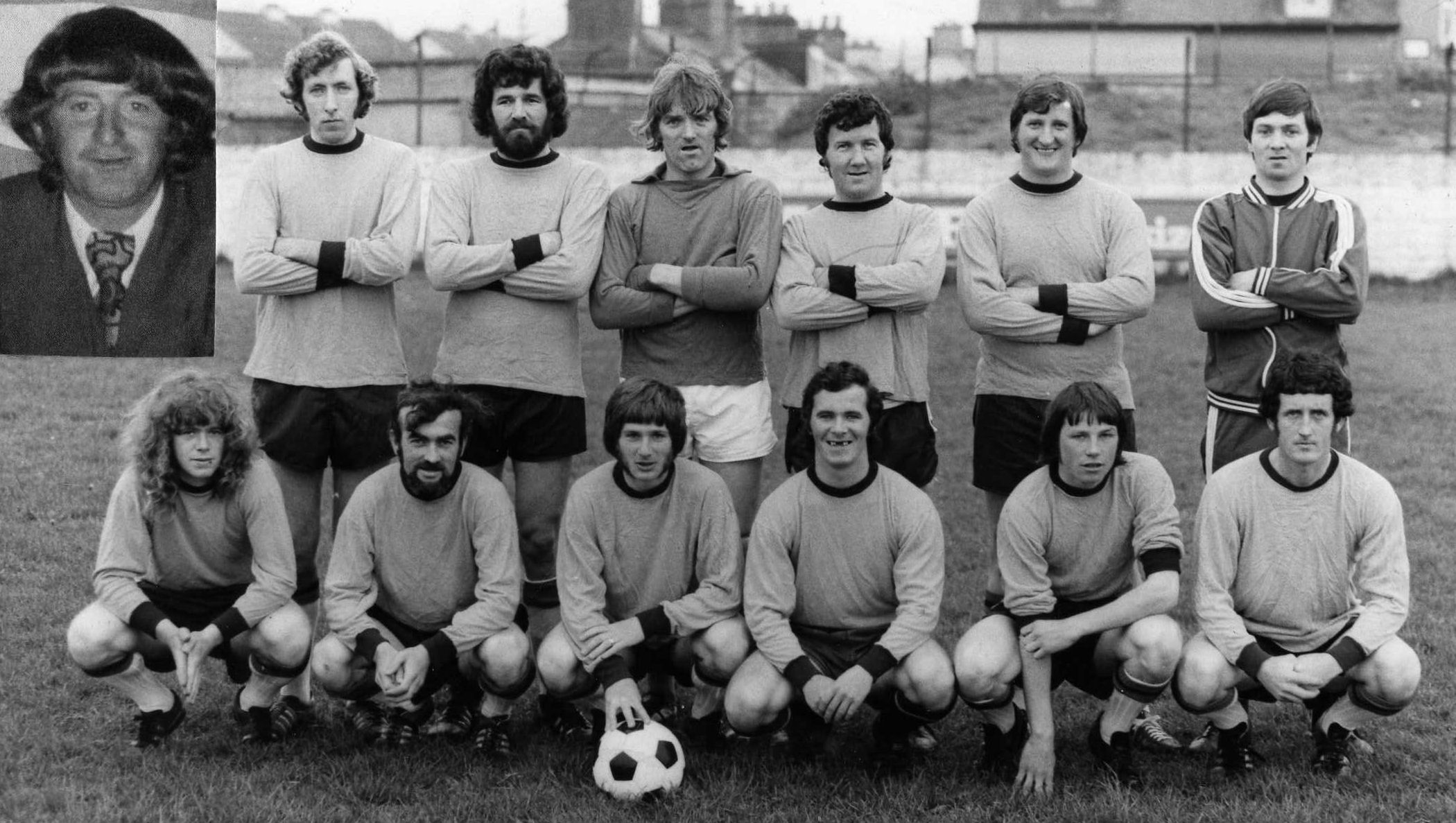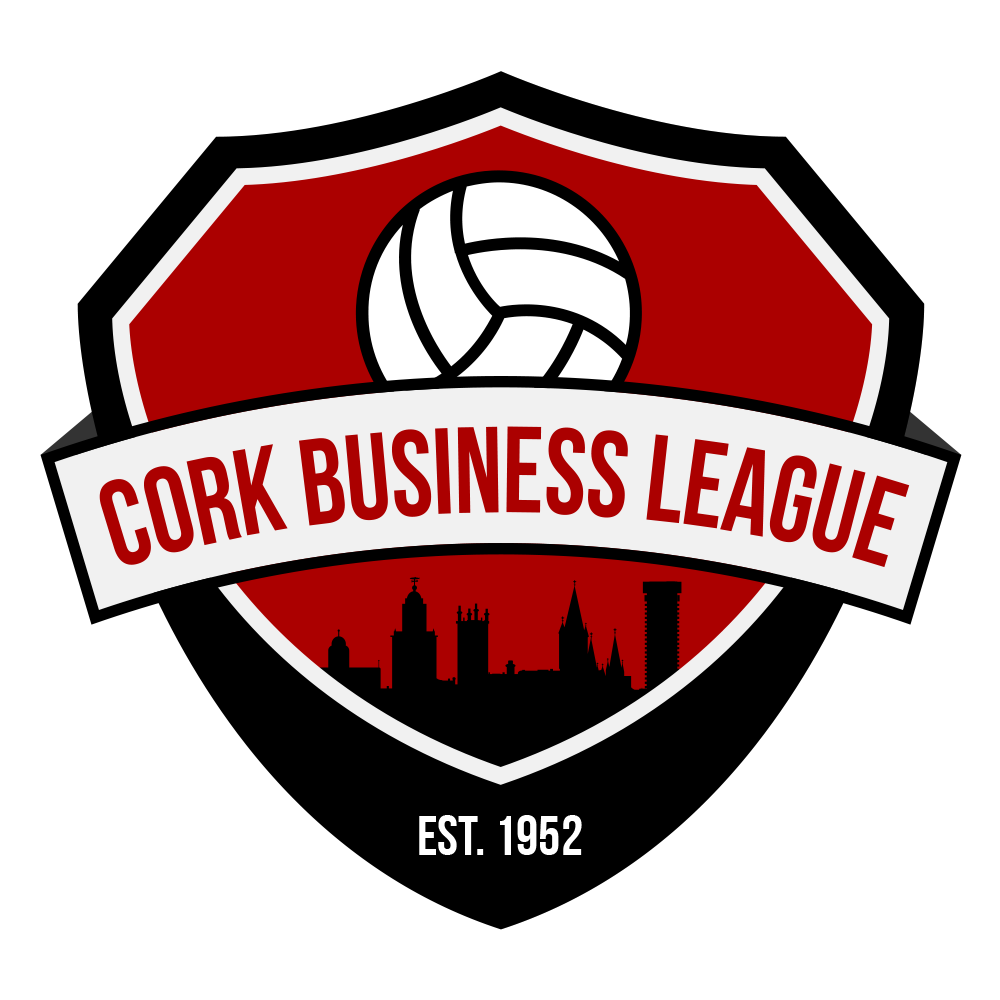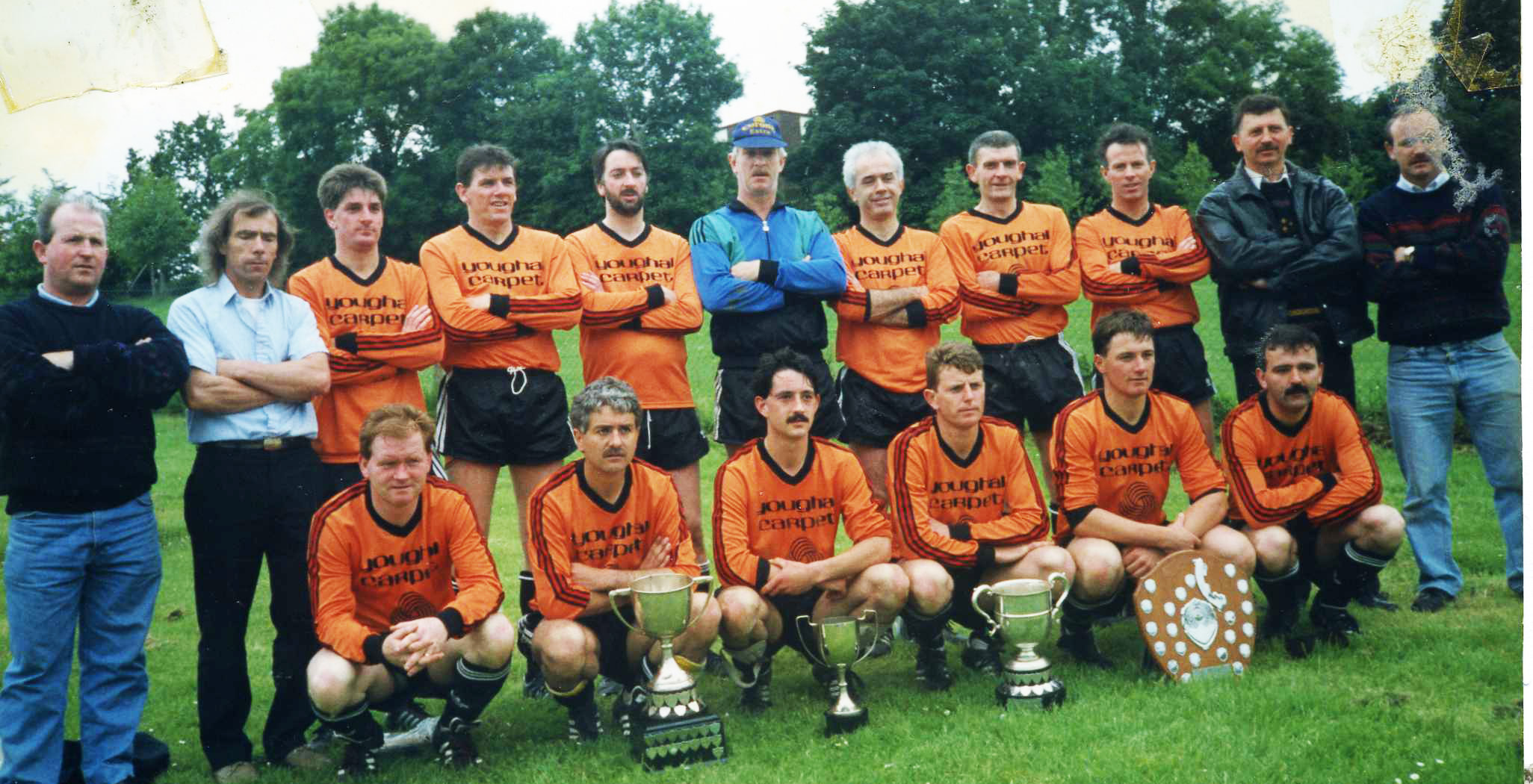
The CBL Still Doing the Business in its 68th Campaign!
? ? Finbarr Buckley
? Postal Workers (League Champions 1972/73):
L to R (Back): Liam ‘Pepper’ Hurley (manager),(inset), Derry Hartnett, John ‘Doc’ Carroll, Phil O’Leary, Peter Walsh, Tom Holland.
L to R (Front): John McGrath, Tony ‘Dada’ Daly, Jerry Browne (capt.), Paddy Hurley, Andy Maher, Terry Ryan.
WHILE most people would happily settle into retirement and enjoy the fruits of their well-earned pension at the age of sixty-six, the Cork Business League, which celebrates it’s 68th consecutive campaign this season, will have no such thoughts as it seeks to expand and return to the era when thirty-six clubs participated for more than a decade, writes Finbarr Buckley.
The uniqueness of this small Cork junior soccer league continues to fascinate. It has reflected like no other sporting organization the broad trends in the economic life of the Cork region for over half a century.
From humble beginnings, the foundations of the league were laid way back into the late forties. A number of companies engaged in trading through the Port of Cork (hence the use of the word ‘Shipping’ in the original title), organised a knock-out competition to run between February and April. Steampacket, Cork Harbour Commissioners and Fordsons were three of the original teams who took part and eventually the league was granted full junior status before the 1952/53 season with affiliation to the Munster Football Association.
With the city’s two League of Ireland senior teams, Cork Athletic and Evergreen, at the height of their dominance, the local football landscape was served by no fewer than seven individual leagues, the Cork District Shipping League the newest entrant. Some prominent referees of the era including Timmy Kelly (father of Pat), Rory O’Connor, Slyvie Groeger, Sammy Allen, Nedser Cotter and Jack Baylor lent their considerable experience to the development of the game throughout the city and county.
Clayton Love, C.H.C., Steampacket, Fordsons, Sullivans and Farm Products were the six teams who competed in the first league championship which was won by Cork Harbour Commissioners. The mainstay of the league throughout the fifties would have been huge employers like Fords, Dunlops, Doyles Stevedores (the dockers) & Innisfallen, before the emergence of meat processing companies like Denny’s, Lunhams, Farmer’s Union and Evergreen Bacon Factory began to dominate in the late sixties and early seventies.
The football bug began to work its way into the inner city through teams like Postal Workers, CIE CMP, Kincora and Youghal Carpet Yarns, Irish Steel, Cork Spinning Co., Aer Lingus and Murphy’s Brewery before the banking industry, through Allied Irish Banks and Bank of Ireland, and the department stores, Roches Stores and Wilton Centre, later on, began to take up the mantel in the late seventies.
The representation of computer and pharmaceutical companies reflected the changing winds of the industry in the eighties with the emergence of firms like Pfizers, Novartis, Janssen, Concurrent Computers, Motorola and EMC. Cork County Council remain the longest-serving team in competition today, joining the league back in 1980. Currently, the league is made up of an amalgamation of software, pharmaceutical, bar and leisure companies which became prominent at the turn of the millennium. Access services companies like Abtran and Voxpro have also made their mark in recent years as the league targets new, innovative firms who focus on employee welfare in the area of health and fitness.
It can be said that as companies prominence waned, their team’s departure from the league often predicted the eventual fate of the company in Cork. While in most other leagues nationwide, when the post-mortem finishes in the local watering hole after the game, the players go their separate ways. However, the Business League allows for the post mortem to continue right through the working week, which helps to create a bond of friendship not alone among team-mates but also among opponents. Wherever would a sales assistant have the opportunity to get the better of a member of the Garda, or a docker come face to face with a carpet weaver for up to an hour and a half on a Saturday or a Sunday. Many teams brought members of various departments together, forging lasting friendships, inside and outside the job.
The league has been excellently served by two secretaries for almost its entirety, first Mick Mooney, from 1955 to 1987 and Peter Harrington up to last season. Mr. Mooney, whose untimely death occurred in 2007, was a well-respected administrator, while Peter Harrington’s diligent work was rewarded with elevation to the posts of Chairman and Vice-Chair of the MFA. Current office-holder Peter Travers has visions to take the league to new heights, beginning with the launch of a newly re-branded website and crest in 2019.
The aim of the Cork Business League is to build and maintain a firm-based League which will commit to promoting positive Employee health & well-being, along with improving commitment and dedication amongst squad members within a working environment.
Other officers to have served with distinction since the League’s inception have been, Jack Sullivan, Jack Fitzgerald, David Lynch, Fred Hickey, Bobby Humphreys, Stevie Murphy, Jackie Carroll, Mick Glennon, Jackie O’Driscoll, Pat Greaney, John Falvey, Noel Lynch, Jimmy Kelleher, John Leonard, Aidan Holland, Adrian O’Leary, Frank Linehan, Bertie Meaney, Ken O’Callaghan, Tadhg Leane, Paul Burdock & Barry Sheehan.
Today’s committee consists of Peter Harrington (Chairman), Peter Travers (Secretary), Ashley Todd (Fixture Secretary), Ray Anthony (Treasurer), Joe Murphy (Registrar) and Finbarr Buckley (PRO). As the country continues to recover from the financial collapse of 2008 and prepares to come to terms with Brexit as well as fighting the recent Coronavirus outbreak, this much respected league which has seen its share of ups and downs is confident of further expansion in the years ahead and looks forward to the heady days of the mid-eighties when thirty-six teams graced the three divisions of twelve.

